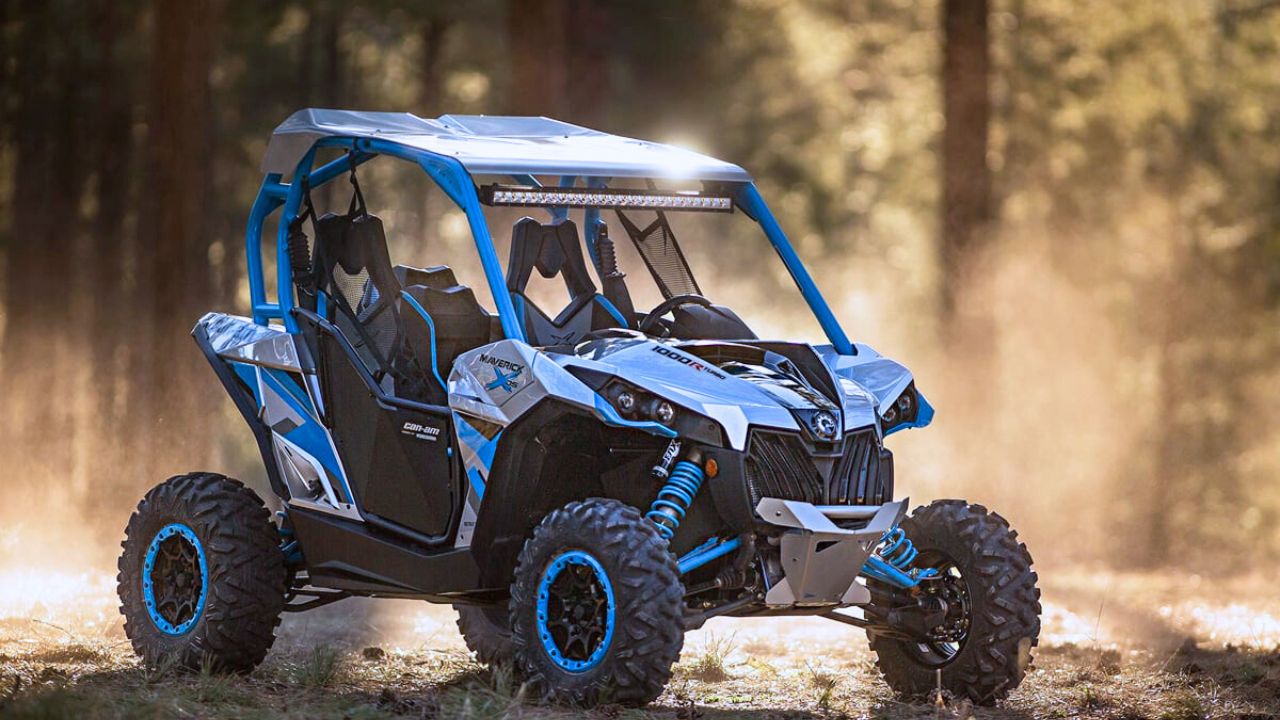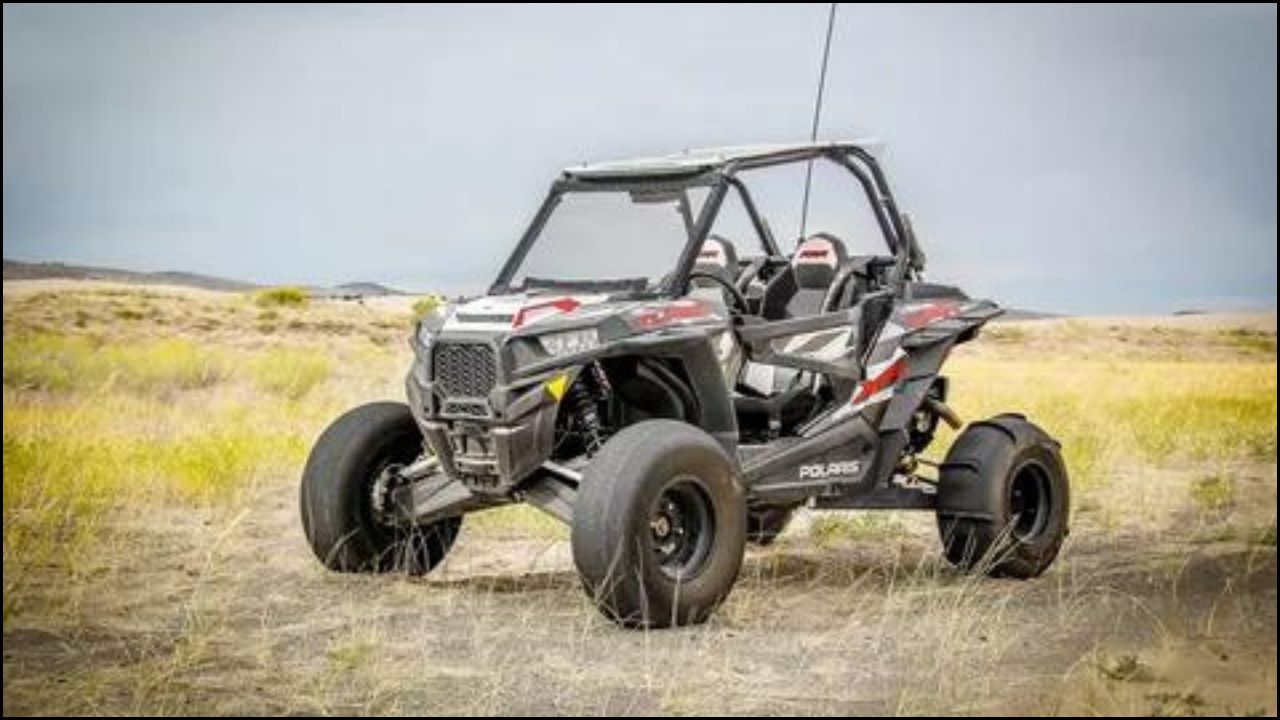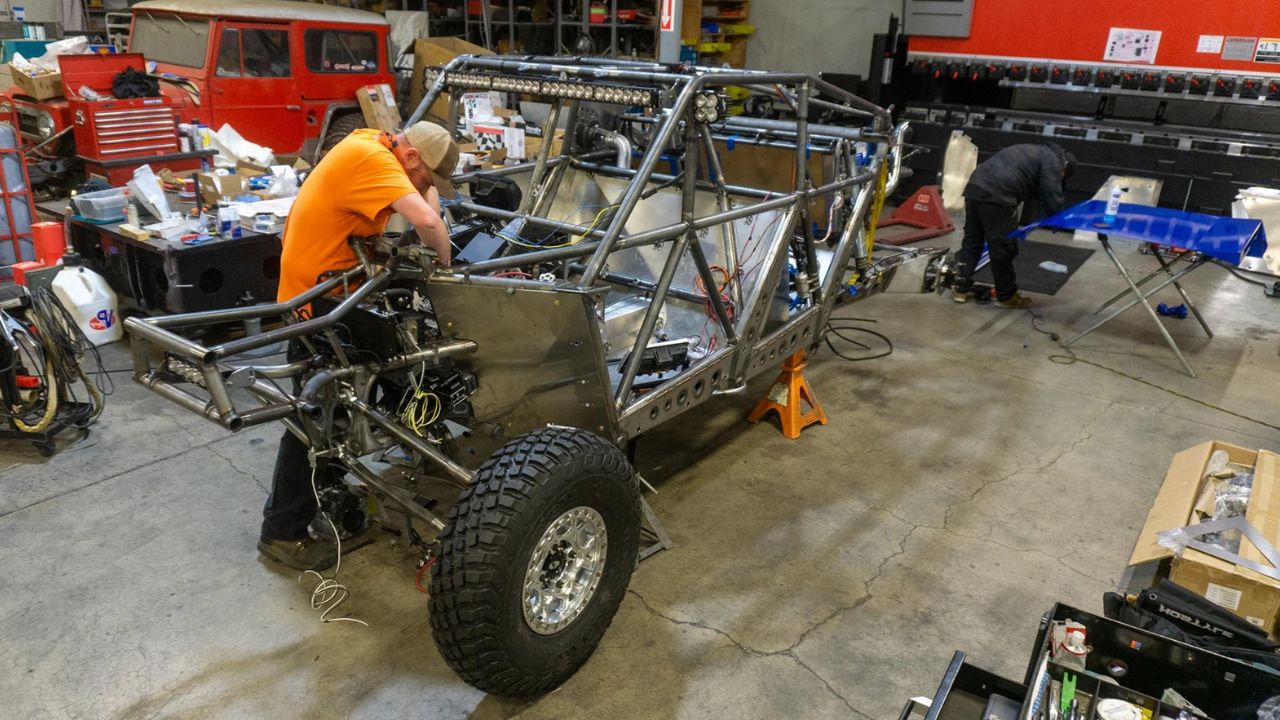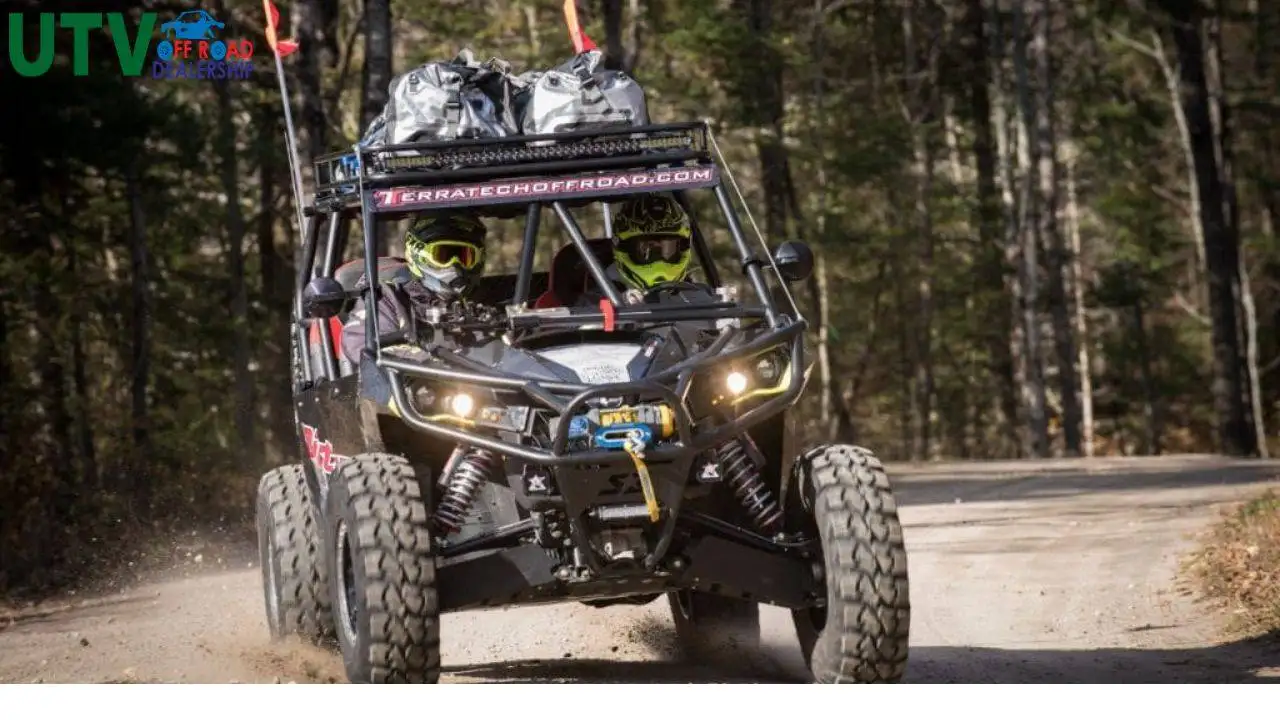Utility Terrain Vehicles (UTVs), also known as side-by-sides, have become increasingly popular for their versatility and off-road capabilities. However, many enthusiasts wonder whether these vehicles are street-legal. Is UTV Street legal? We’ll explore the rules and regulations surrounding the use of UTVs on public roads.
What is a UTV?
First, let’s define what exactly a UTV is. A UTV is a vehicle designed for off-road use, typically with a side-by-side seating arrangement, similar to a traditional ATV (All-Terrain Vehicle). Compared to ATVs, UTVs are bigger and stronger. , often equipped with features such as a roll cage, seat belts, and a cargo bed.
What Is A Street Legal UTV
A street-legal UTV is a vehicle permitted to operate on public roads within a state, excluding U.S. highways. Conversely, off-highway vehicles, which are not street-legal, are limited to off-road trails or designated areas.
Despite their rising popularity, street-legal UTVs must adhere to standard vehicle regulations, which require insurance, registration, and a valid driver’s license. Additionally, compliance with state and federal emissions standards is mandatory.
Street Legal Status

A UTV’s eligibility for the road is dependent upon a number of variables, including local rules and ordinances. In many jurisdictions, UTVs are only allowed on public roads if they meet certain requirements and are properly registered and licensed.
Requirements for Street Legal UTVs
The process of making your UTV street legal varies depending on your state’s regulations. Some states only require registration and insurance, while others have stricter criteria, such as license plates and specific size and noise limitations.
Regardless of location, there are essential steps all UTV owners should follow. Start by researching local laws and requirements. Make sure your UTV has the characteristics it needs for road use, such as turn signals and brake lights, and get any licenses or permits that are required. Following these steps ensures compliance with the law and safety while driving on public roads.
These requirements may include:
- Safety Equipment: Street-legal UTVs are often required to have safety equipment such as headlights, taillights, turn signals, mirrors, windshields, and seat belts.
- Emissions Compliance: Some jurisdictions require UTVs to meet certain emissions standards in order to be street legal.
- Speed Limitations: Street legal UTVs may be subject to speed limitations imposed by local laws.
- Registration and Insurance: Like cars and motorcycles, street-legal UTVs must be registered with the DMV and have valid insurance coverage.
- Licensing: In some areas, drivers may need a special license or endorsement to operate a street-legal UTV.
Why make your UTV street legal?

The surge in popularity of street legal UTVs has been remarkable in recent years. What began as a necessity for farmers, hunters, and outdoor enthusiasts has evolved into a widely embraced culture.
The advantages are manifold. No longer do you need to load your side-by-side onto a trailer to traverse town, nor are there restrictions dictating when and how far you can drive your UTV. Gone are the limitations imposed by needing a truck and trailer for vacations.
We’ve all experienced the frustration of navigating a tight restaurant parking lot with a tow setup. Many of us have wished for the simplicity of driving our UTV around like a car – and now, you can!
While some communities disregard UTVs driving on public roads without special permits or paperwork, relying on such informal agreements can lead to trouble if laws are ever broken. Moreover, these arrangements are typically limited to specific areas, restricting your mobility beyond those boundaries.
The good news is that there is more than one-size-fits-all method for making a UTV street legal. Depending on your location, there may be multiple avenues to achieve street legality.
Benefits of Street Legal UTVs
Owning a street-legal UTV has numerous advantages. First, it eliminates the need to trailer your vehicle to and from off-road trails, enhancing convenience. Additionally, street-legal UTVs grant access to trails that are usually limited to off-road vehicles.
Moreover, they facilitate easy travel between private property and public land. Furthermore, they can be registered and insured like standard vehicles. Lastly, owning a street-legal UTV offers a unique and enjoyable driving experience. Whether seeking convenience in off-roading or accessing exclusive trails, a street-legal UTV proves to be a versatile and practical choice.
Owning a street-legal UTV can offer several benefits:
- Convenience: Driving your UTV on public roads can be more convenient for transportation and accessing off-road trails.
- Versatility: Street-legal UTVs can serve as both off-road vehicles and on-road transportation, offering versatility for various activities and purposes.
- Exploration: Street-legal UTVs allow for greater exploration of outdoor areas, including trails, backroads, and rural landscapes.
Accessory Items to Improve Your UTV

If you’re a regular road user with your UTV, incorporating a few essential accessories can significantly enhance your driving experience. Firstly, installing a windshield can protect against wind and debris, improving visibility and overall comfort.
Additionally, equipping your UTV with off-road lights enhances visibility during low-light conditions, ensuring you can see and be seen effectively. Furthermore, installing mud flaps can help maintain your vehicle’s cleanliness by preventing mud and other debris from splattering onto it.
By integrating these essential accessories, you can enhance the road-friendliness of your UTV, resulting in a safer and more comfortable driving experience on paved surfaces.
Conclusion
While UTVs are primarily designed for off-road use, meeting specific requirements can make them street-legal in certain jurisdictions. Before attempting to drive a UTV on public roads, it’s essential to research and understand the laws and regulations in your area regarding UTVs.
By making sure that your street-legal UTV complies with local regulations, you may benefit from the ease and adaptability of having one for both off-road excursions and on-road transportation.
FAQ
What is the Texas law on UTV?
When driving on roads approved by the city or county, the ATV, ROV, UTV, and Sand Rail must exhibit an Off-Highway Vehicle license plate. Only on roads with a speed restriction of 35 mph or less is this type of operation allowed.
Are RZR streets legal in Texas?
In Texas, the standard guideline is that ATVs, ROVs, and UTVs cannot be registered as conventional street-legal vehicles. Since these vehicles are primarily intended for off-road use, their usage on public roads is limited due to safety concerns.
What Kind of Insurance Do I Need For My Off-Road Vehicle?
- Body Injury Liability [BI]: You’ll find this coverage is mandatory in most states.
- Property Damage Liability [PD].
- Uninsured/Underinsured Motorist [UM/UIM].
- Comprehensive and Collision.
- Medical Payments.
- GAP Coverage.
What state is best to license a UTV?
- Ohio.
- Oklahoma.
- South Dakota.
- Tennessee.
- Utah.
- Washington.
- Wisconsin.
- Wyoming.

